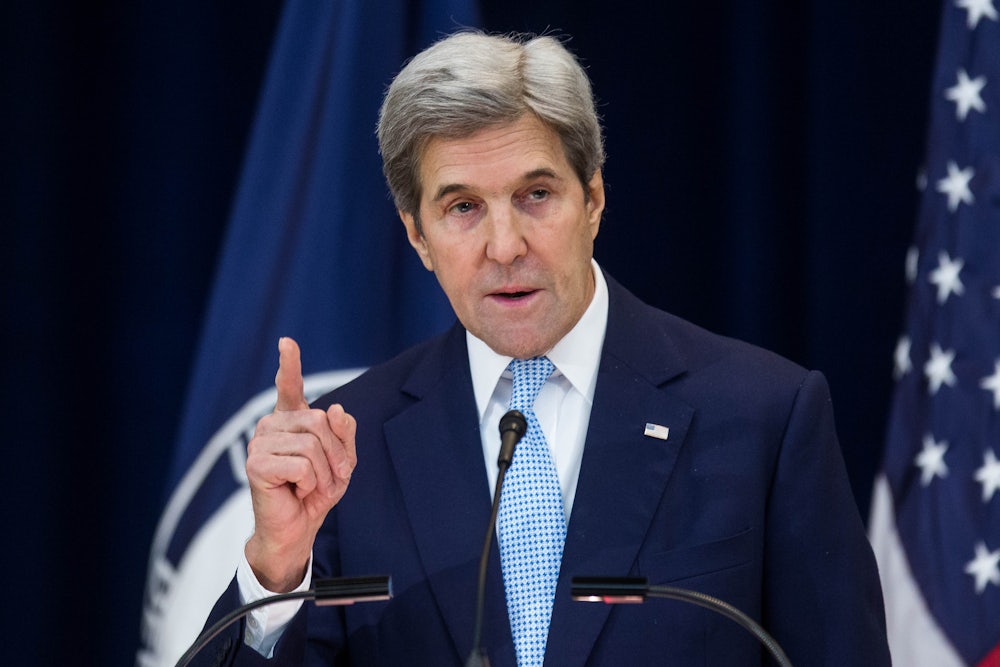On one level, Kerry’s much-anticipated speech explaining the United States’s decision not to veto a non-binding UN resolution calling for Israel to stop building settlements in occupied Palestinian territory was what you’d expect from the Secretary of State: Measured, comprehensive, intelligent, and excruciatingly long—Kerry didn’t even begin laying out his parameters for lasting peace, ostensibly the purpose of the speech itself, until the 45 minute mark. Kerry is many things, but he is not concise.
For the most part, that was a good thing. At the start of the speech, Kerry promised to be “candid” and tell “uncomfortable truths” about Israel. For the most part, he did that, though in characteristic fashion, he mostly split the difference and avoided specifics, instead speaking generally about the current destructive path Israel is on and the growing necessity for a two-state solution. Similarly, while a two-state solution has been a goal of Kerry’s for the entirety of his term as Secretary of State, it’s hard to take him seriously when he claims that refusing to veto the UN resolution was about preserving the possibility for a two-state solution, given the administration he serves will be out of office in less than a month.
But there were still plenty of “uncomfortable truths” in Kerry’s tough but diplomatic speech. He argued that a two-state solution was more necessary than ever, given the instability in the Middle East. That Israel can either be a “Jewish state or a democratic one” and that settlement-building is inherently undemocratic—and that the United States cannot support undemocratic partners. He lamented the fact that anyone who disagrees with Israeli policy is often labeled anti-semitic, despite the fact that settlement-building is widely opposed and a two-state solution is widely favored in the United States. He slammed the Netanyahu administration, accurately labeling it the “most right-wing in Israel’s history with an agenda driven by its most extreme elements.” And he called settlement building what it is, in terms of Israel’s larger national security: A red herring at best, and an accelerator of violence at worst. “Settlement expansion,” Kerry said, “has nothing to do with Israeli security.” And, though it came relatively late in the speech, Kerry made a strong argument that taking action—ironically in the form of an abstention—was a necessity:
John Kerry: "We cannot in good conscience do nothing and say nothing when we see the hope of peace slipping away" https://t.co/jhEHziKQeb
— CNN (@CNN) December 28, 2016
Kerry has been inching toward this conclusion for quite a while—the speech he gave in early-December at the Saban Forum was similar to this one, and reports indicate that he’s wanted to give a speech like this for quite a while, possibly since peace talks broke down in 2014. The foundation of the speech is undeniably shaky: Kerry outlines all the barriers to a two-state solution, and the reasons one has failed in the past, while simultaneously arguing that it is the only way forward. But aside from that, it’s exactly the kind of speech that Kerry should have given years ago, instead of placing his faith in good faith negotiations and careful, quiet diplomacy: It puts Israel’s feet to the fire and makes clear that the international consensus is against its current actions, a fact that has been papered over, in part, by U.S. vetoes. It’s exactly how you deal with a demagogue. The only problem is, of course, that none of it will matter in three weeks.
